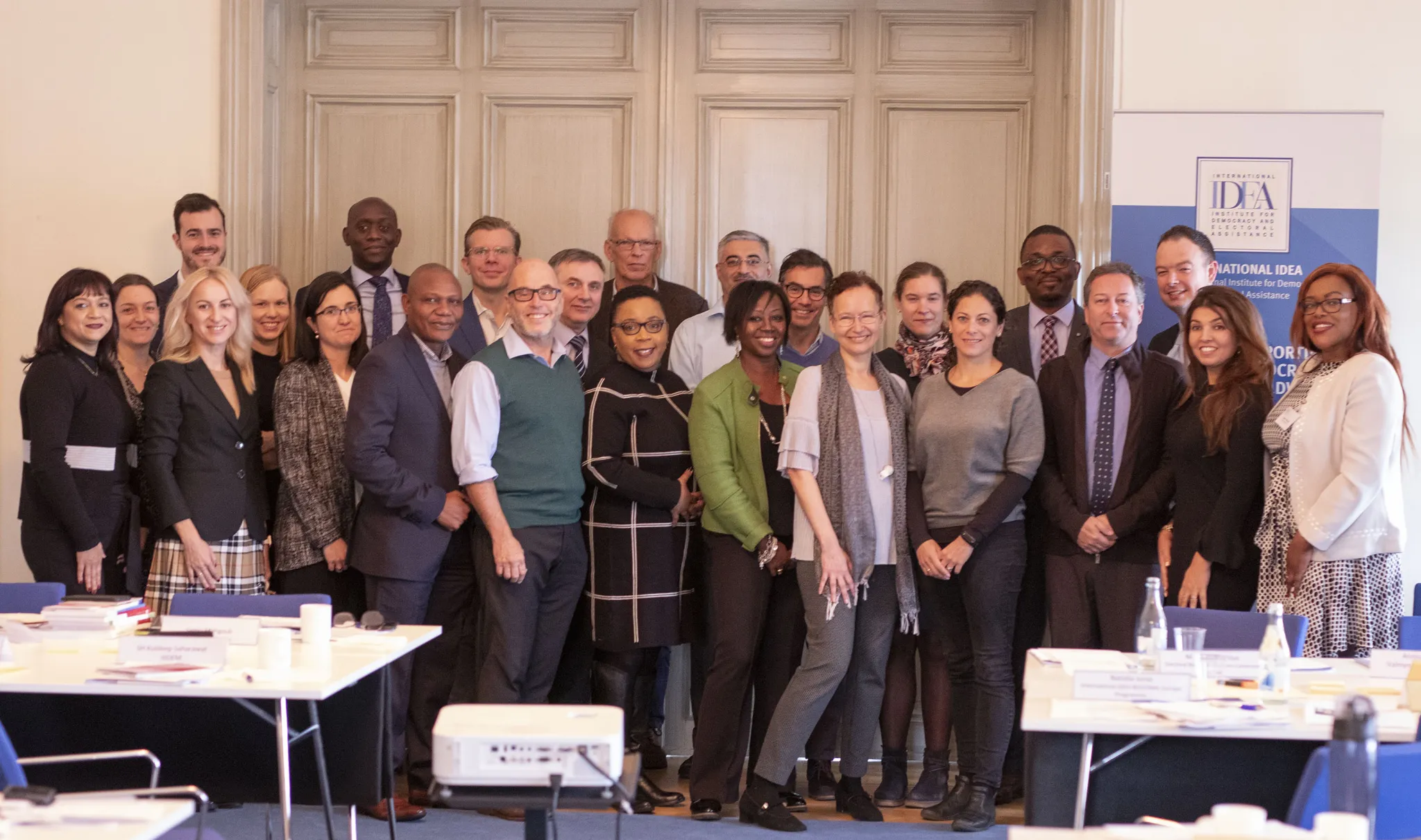Election trainers share success and failure stories in workshop on best practices

The International Institute for Democracy and Electoral Assistance (International IDEA) convened a group of 23 practitioners, experts and academics to attend a workshop dedicated to best practice in training capacity and delivery in election administration.
Within an election management body (EMB), inexperienced or under-resourced election officials can make mistakes or cause delays that have devastating knock-on effects as electoral preparations roll out. In the current communicational landscape, a small mistake has the potential of becoming the spark that ignites the fire. For these reasons, blunders by electoral staff bring great risk—both to the delivery of the event, and to the credibility of the process.
Because of these dynamics, it is well known that a professional and well-trained workforce is a precondition for the organization of credible elections. As a result, EMBs are continuously working to enhance training and professional development opportunities for their permanent and temporary staff. Increasingly, they are also arranging training and education for other stakeholders such as observer groups, electoral dispute judges, security sector agents, political contestants and voters. This commitment typically manifests through the strengthening of existing EMB training departments or through the establishment of dedicated centers. In some cases, the training and education initiatives anchor wider electoral administration principles and practice by drawing on the resources of the Building Resources in Democracy Governance and Elections (BRIDGE) prorgamme partnership, while in other cases the focus is operational and anchored in domestic regulation and procedure.
The workshop organized by International IDEA explored the global trends on EMB training capacity and delivery. The first presentation from the University of East Anglia focused on the findings of worldwide survey on training, the effects of training and training formats and the second presentation from International IDEA focused on the findings of a survey which had identified thirty-nine (39) electoral training and education centers around the globe. Both presentations addressed the links between operational training and professional development on the one hand and EMB performance and electoral integrity on the other.
Participants from the EMBs of Australia, Cameron, Georgia, India, South Africa, Sweden as well as the International Foundation of Electoral Systems (IFES), the United Nations Development Programme (UNDP) and the United Nations Electoral Assistance Division (UNEAD) shared their personal experiences of successful and failed training initiatives (activities, programmes, type of learning, language) in order to draw collective learnings.
The final session included a presentation on operational training and staff training and development programmes introduced by the Training and Education Unit (Australian Election Commission) and another one focused on lessons learnt from the Centre of Continuous Electoral Training (Moldova). The two cases were showcased to illustrate two distinct models, namely internal unit vs external centre. The discussions that followed were informed by case studies commissioned by International IDEA on how EMBs establish, operate and further develop training programmes and dedicated training and education facilities.[1]
The workshop ended with a structured session that identified distinct recommendations for the BRIDGE programme partnership, for the electoral training community, and for the electoral assistance field more broadly.




